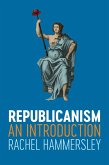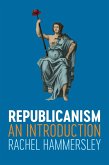Katyn--the Soviet massacre of over 21,000 Polish prisoners in 1940--has come to be remembered as Stalin's emblematic mass murder, an event obscured by one of the most extensive cover-ups in history. Yet paradoxically, a majority of its victims perished far from the forest in western Russia that gives the tragedy its name.
Hinweis: Dieser Artikel kann nur an eine deutsche Lieferadresse ausgeliefert werden.
Hinweis: Dieser Artikel kann nur an eine deutsche Lieferadresse ausgeliefert werden.
'This book, a rare example of collective scholarship, is more than path-breaking. It manages to move around the furniture in an entire field, that of memory studies, one that is shared by literary scholars, linguists, anthropologists, psychologists, historians and others. This exploration of memory events is essential reading for all students in the social sciences and the humanities.' -- Jay Winter, Yale University
'In an exemplary way, this multi-disciplinary in depth case study reconstructs the symbolic legacy of Katyn as a transnational trauma. The book is a unique collective achievement with genuine potential to integrate this key event into European memory.' -- Aleida Assmann, University of Konstanz
'The crime of Katyn has bedeviled European memory for decades, and only an ambitious pan-European effort such as this one can reveal every angle of the problem - and some of the solutions.' -- Timothy Snyder, Yale University
'In an exemplary way, this multi-disciplinary in depth case study reconstructs the symbolic legacy of Katyn as a transnational trauma. The book is a unique collective achievement with genuine potential to integrate this key event into European memory.' -- Aleida Assmann, University of Konstanz
'The crime of Katyn has bedeviled European memory for decades, and only an ambitious pan-European effort such as this one can reveal every angle of the problem - and some of the solutions.' -- Timothy Snyder, Yale University









